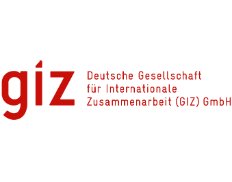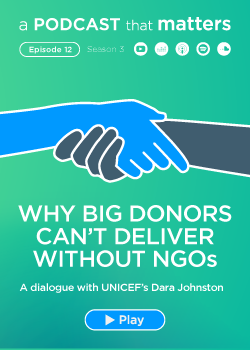Print

Support for the HIV and AIDS programme of the Nelson Mandela Foundation (NMF)
Details
Locations:South Africa
Start Date:Jan 1, 2008
End Date:Dec 31, 2013
Sectors: Education, Training & Capacity Building, Health, Organizational development
Categories:Consulting services
Funding Agencies:
Date posted:Jul 17, 2013
Description
Promoting community dialogue to tackle HIV and AIDS.
Client: German Federal Ministry for Economic Cooperation and Development (BMZ).
Partner organisation: Nelson Mandela Foundation.
Scenario
Over the past 30 years, more than 25 million people have died from AIDS. The debilitating disease affects people during their prime years of life. It causes premature death and has devastated families and communities, thereby complicating efforts to fight poverty, improve health and promote development. HIV infections and AIDS diminish a person’s ability to work and support and provide for his or her family, and the impact of reduced productivity is felt on a national scale. At the same time, treatment and health-care costs related to HIV and AIDS consume household incomes and strain the re- sources of communities — hospitals, social services, schools and businesses. The combined effect of reduced income and increased costs impoverishes both individuals and households.
More than 40 million people worldwide are living with the virus, and over 60 per cent of them live in southern Africa. South Africa bears the brunt of the global HIV and AIDS epidemic, with a prevalence rate of around 20 per cent among adults, and some six million people infected. Although the increase in the number of new infections has slowed down, some 500,000 people still become infected every year.
Project
Against this backdrop, the Deutsche Gesellschaft für Internationale Zusammenarbeit (GIZ) GmbH has supported the Nelson Mandela Foundation (NMF) on behalf of the German Government since 2001. Nelson Mandela launched the Foundation in 1999 with the goal of promoting peace, democracy and development on the African continent. Combating the HIV and AIDS epi- demic and mitigating its social consequences is a central concern. GIZ’s initial support to NMF included establishing modern, effective financial management with a strong organisational structure and consulting on campaign management. In 2008, GIZ entered into a financing agreement with NMF to support the Foundation’s successful HIV and AIDS preven- tion programme entitled ‘Community Dialogues and Community Empowerment’. The second and last project phase began in 2011 and is focused on disseminating the approach, evaluating its impact, and establishing sustainable structures. Govern- ment and non-governmental organisations (NGOs) alike have been trained in the technique of com- munity dialogue in order to implement it in all South African provinces beyond the end of the project. The methodology used in the community dia- logues is based on the principles of Gestalt Therapy and the United Nations Development Programme’s successful ‘Community Capacity Enhancement’ approach. It empowers communities to identify their own impediments to de- velopment and find solutions to improving their respective futures.
The approach addresses the underlying social causes of HIV and AIDS which drive the epidemic in South Africa, be they harmful cultural norms and practices, power relations, gender, stigmas or discrimination. The focus is on interactive dialogue on the epidemic’s deeper social causes and, through a facilitated process, com- munity decision-making and action.
The dialogues provide a safe space for communities to tackle issues head-on, thus preparing the way for them to decide what action is required in their particular circumstances. The community dialogues use art, industrial theatre and the media to engage young people in particular. After five years of successful implementation, the Nelson Mandela Foundation and GIZ are handing the programme over to government and the relevant NGOs and communities. GIZ has supported partner organisations financially to conduct staff training and workshops, increase knowledge management within the organisation, and collectively summarise the technique and its impact. NGOs have also been supported in conducting the NMF Community Dialogues to spread this interactive methodology in tackling HIV and AIDS across the country. Through GIZ’s multisectoral approach to HIV and AIDS, the dialogues are being promoted through the national, provincial and district AIDS councils as a suitable tool for state institu- tions, NGOs and the private sector alike.
Impact
With GIZ’s support, the Nelson Mandela Foun- dation and its partner organisations have held over 400 dialogues in South African communities and trained some 200 facilitators since 2008. More than half of the community dialogues’ participants were women. In communities where the programme has been implemented, changes have been documented regarding virginity testing, rape, condom use, as well as access to HIV counselling and testing and anti- retroviral treatment, among many other issues. These are clear indications that communities are able to change harmful norms and values that hinder development and spread disease.
The conversations have opened up communication between individuals and between local government and civil society, in turn driving progress in the provision of health-related and social local-government services, and changing attitudes within the police force towards gender- based violence, for example. As a result, the taboo subjects of HIV and AIDS can increasingly be discussed openly, encouraging elders to start talking about the disease and the social ills that contribute to its spread. With government and NGOs adopting the method and taking over responsibility for the implementation of the programme, continuation of the community dialogues has been secured beyond the end of GIZ’s cooperation with the Nelson Mandela Foundation.


